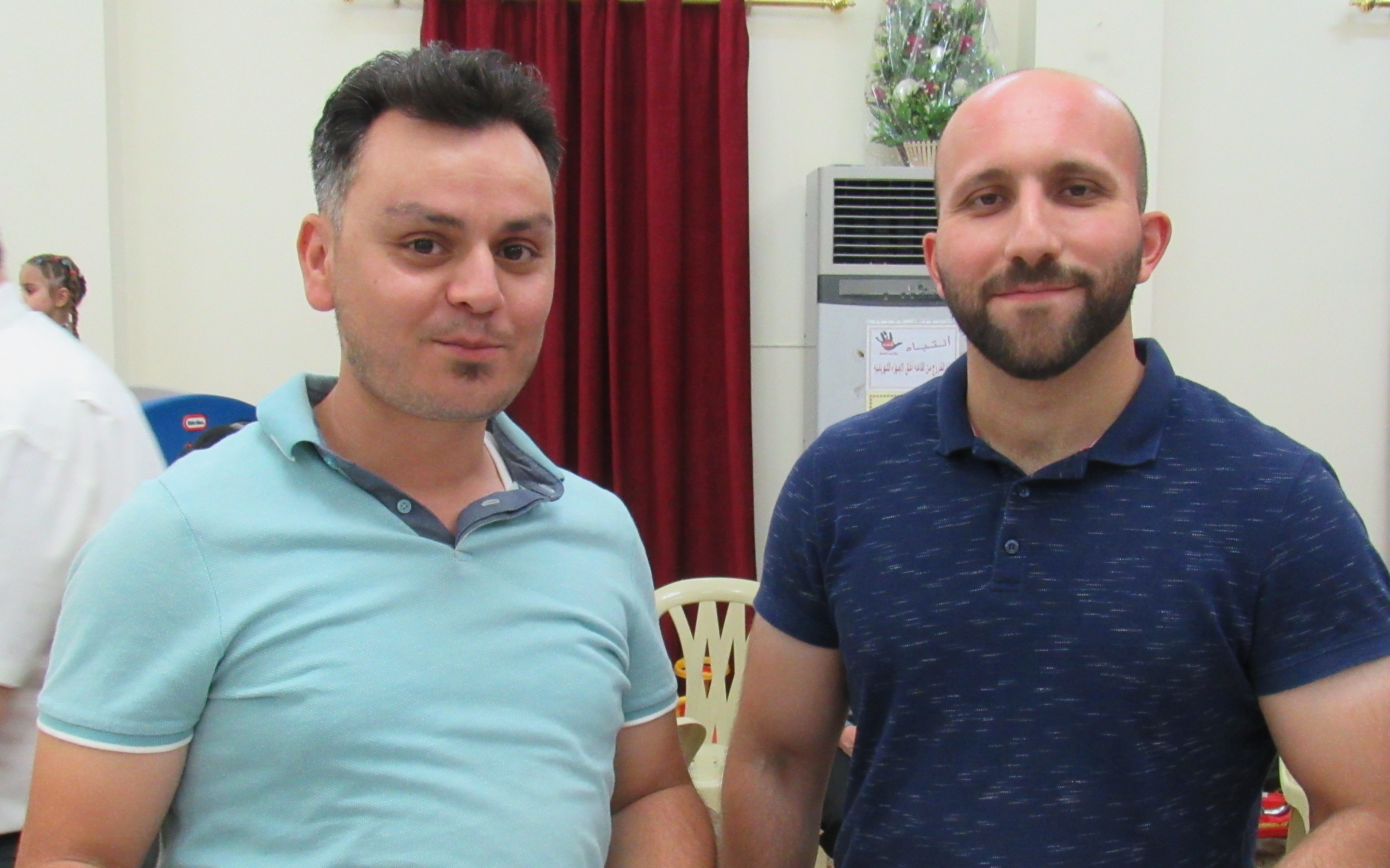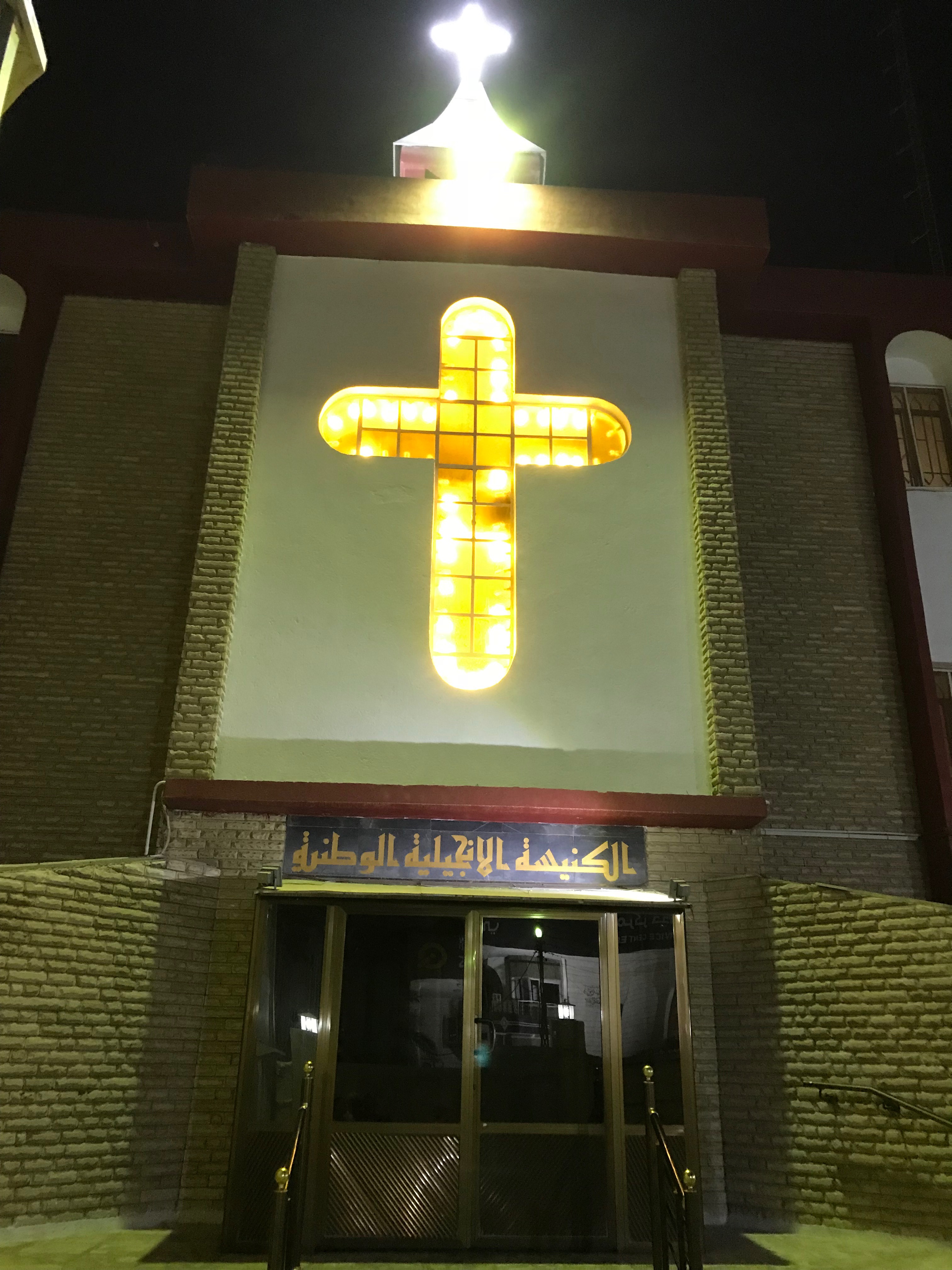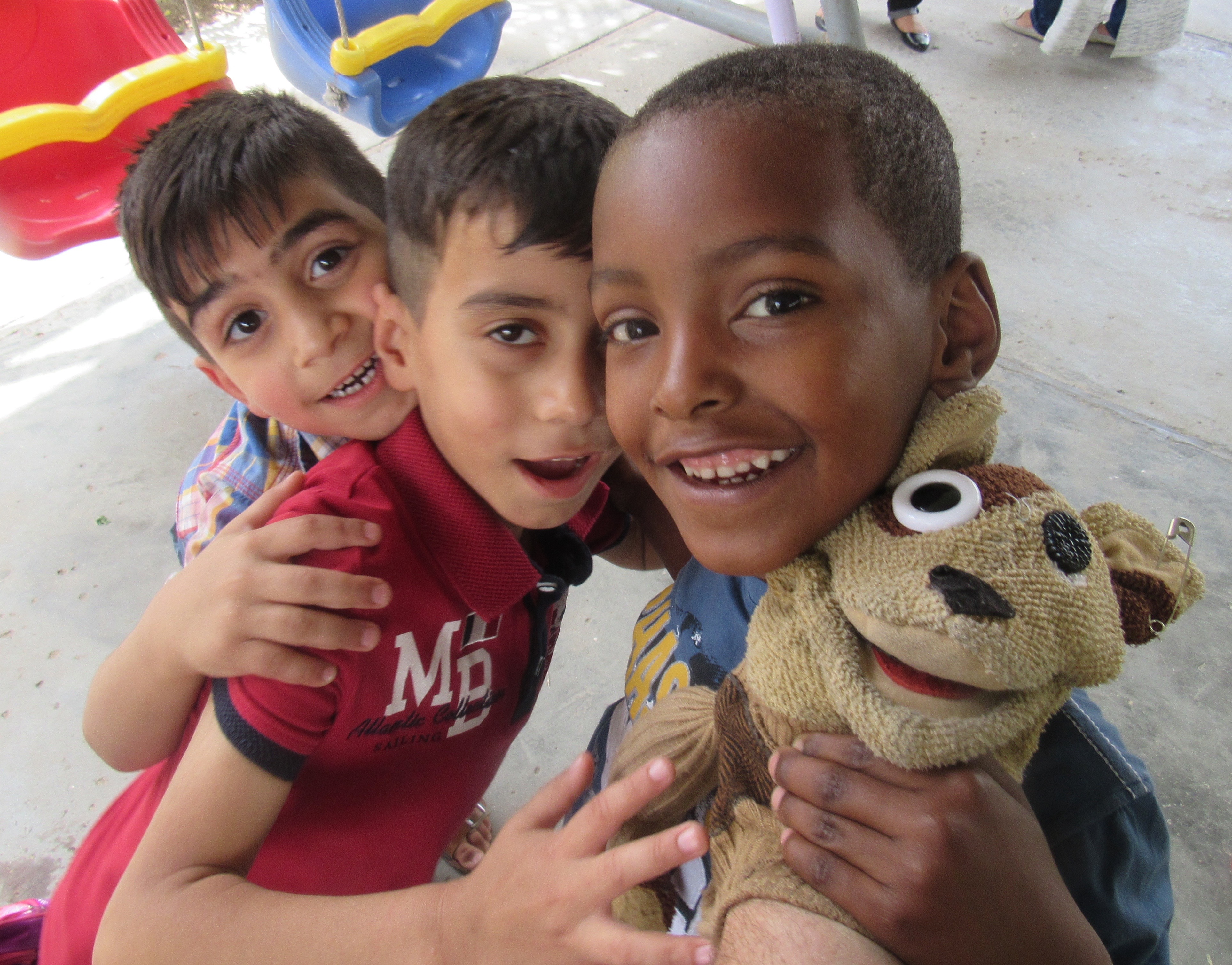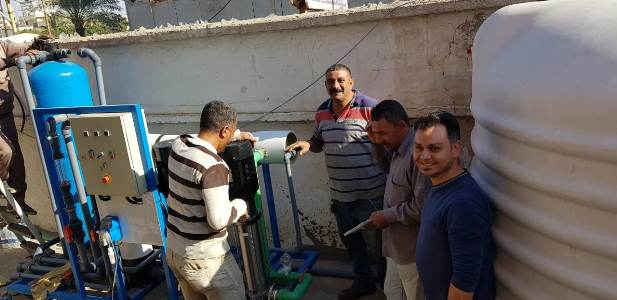A Letter from Elmarie and Scott Parker, Serving as regional liaison for Syria, Lebanon and Iraq (Elmarie) and as Associate for Ecumenical Partnerships (Scott)
October 2019
Write to Scott Parker
Write to Elmarie Parker
Individuals: Give online to E200504 for Scott and Elmarie Parker’s sending and support
Congregations: Give to D507569 for Scott and Elmarie Parker’s sending and support
Churches are asked to send donations through your congregation’s normal receiving site (this is usually your presbytery)
In our last letter Scott and I mentioned we would like to share further with you how we are experiencing the work of our partners in Iraq, Syria, and Lebanon, incarnating the themes of mutuality in ministry, ministry with those who are the most vulnerable, and ministry that seeks to transform structures of injustice that oppress especially the most vulnerable. These themes are among those that emerge from reflecting on Christ’s teachings as conveyed by Matthew’s gospel in chapter 25. As well, these are themes that seem to be rising to the top of the conversation Presbyterian World Mission is having with global partners and partners throughout the Presbyterian Church (U.S.A.).
In this letter, and the one coming in November, I invite you to listen-in to our partners from the Assembly of Evangelical (Presbyterian) Churches in Iraq as they share in their own words about the ministries to which they have been called. Many of you reading these letters have collaborated in some of these ministries through your prayers and financial gifts. Please be in contact with me (Elmarie Parker), if you would like to extend your involvement or get involved for the first time.
From the National Evangelical (meaning Presbyterian) Church in Basra, Iraq
The south of Iraq has been facing increasingly severe water shortages and contamination of public water supplies over the past many years. This is due to a combination of impacts from more frequent droughts, water policies in Turkey and Syria that restrict water flow through their respective dams on the Euphrates and Tigris Rivers, lowering water levels in Iraq, which is on the downstream side of both rivers (with the ripple-effect of causing salinated water from the Gulf to back-up into the fresh water of the river), water misuse by Iraqi industry and farmers, and the heavy metal contaminants left behind from uranium-depleted weaponry used by coalition forces during both Gulf Wars*. During the summer of 2018, this water contamination and shortage reached a peak, leading to several thousand citizens in Basra becoming dangerously ill, even to the point of death for several hundred. The water was so contaminated that to shower in it caused severe chemical skin burns.
The Presbyterian Church in Basra responded, supported by their Presbyterian friends in Kirkuk and Baghdad who were sending shipments of bottled water for them to distribute to those in need, especially the most impoverished families in Basra, who could ill afford to buy bottled water. But bottled water is expensive, especially as those families who have a corner on the bottled-water industry in Iraq chose to increase their profit margins rather than address the root causes of this water contamination and shortage. So, the Presbyterian Church in Basra began to research desalination equipment so that they could process larger quantities of water for those in need. The project would cost just shy of $16,000. Through Presbyterian World Mission, the Iraq Partnership Network, and Presbyterian Disaster Assistance, the needed funds were sent. Here is Dr. Zuhair Fathallah’s report on this ministry. He is one of the elders of the church:With the funds received from Presbyterian World Mission and Presbyterian Disaster Assistance, we were able to purchase the desalination unit at a 10% discount, two water tanks (holding 3 and 5 metric tons of water respectively), two electrical pumps, all the necessary electrical supplies, and the materials needed to install a concrete pad and sun-shield shed. The desalination equipment requires monthly filter changes and continuing maintenance, which costs a little more than $1,000 a year. This will be a continuing funding need.
After the installation of this equipment, we have now been able to provide the children of the kindergarten and the nursery schools (over 250 children, 98% of whom are from non-Christian families), with clean potable water while they are at school with us, and to the schools’ staff and the children’s families. Members of the congregation can use this water supply, along with anybody from the community who is in need, for no cost to the beneficiaries. There is a water tap near the church gate anyone may use who needs water. We also installed a line to the apartment of the pastor and his family and to the principal of our schools and his family’s apartment.
The unit is working now only 3 hours a day (producing 3 metric tons of water), because of the 2019 summer holidays for the kindergarten, but the water is available for everyone who is in need of it. There is little demand now because the weather is still good and because this year we had a heavy rain which has added to public water reserve of sweet water.
Thank you all for helping us to achieve this goal which adds to our work in the community. We are looking forward to see you soon.
Blessings,
Zuhair Fathallah
* Concerned PC(USA) members will be bringing forward an overture to the 2020 General Assembly with recommendations for how Presbyterians can advocate for better clean-up of these heavy-metal contaminants that are a leading cause of community health challenges, including severe birth defects. If you would like to learn more about this issue, please contact me for a copy of the proposed overture.
Scott and I add our own thanks for all ya’ll’s (we learned this from our time in the southeast this past winter) faithful partnership with us and with our siblings in Iraq. Thank you for sharing in this important work that, indeed, is in the spirit of Matthew 25’s call to minister with and on behalf of the most vulnerable in our respective communities and contexts. We invite you to continue in this journey with us through your prayers, invitations to visit with you in person when we are in the States, your correspondence and visits with us and our partners when we are in the Middle East, your collaborations on advocacy issues, and your financial gifts that allow us to continue in this work. You all are a deep encouragement to us, and we pray that you may also be encouraged in your life of following after Jesus as you read about and join in this faithful work being carried out by our sisters and brothers in Iraq. As always, we invite you to be in touch with us by email with any follow-up questions and/or ideas you may have after reading this update.
In Christ’s Peace,
Elmarie (for Scott too)
Please read this important message from Sara Lisherness, interim director of Presbyterian World Mission
Dear friend of Presbyterian Mission,
Greetings in Christ! As the interim director of Presbyterian World Mission, I am grateful to have the opportunity to thank you for your continued support of PC(USA) mission co-workers.
The enclosed newsletter bears witness to some of the many ways in which God is at work in the world through long-standing relationships between global partners and the PC(USA). These partnerships are nurtured and strengthened by the presence of mission co-workers in over 40 countries; you are an important part of this partnership too, as you learn about and share how our church is involved in global ministry; as you pray for our partners and mission co-workers; and as you take action to work with others for God’s justice, peace and healing.
I write to invite you to continue joining us in partnership in three ways. First, your prayers are always needed. Please pray that God will continue guiding the shared work of the PC(USA) and global partners as we engage together in service around the world. Pray, too, for mission co-workers, that they may feel encouraged in the work they are doing under the leadership of global partners.
Second, please consider making a year-end gift for the sending and support of at least one mission co-worker. There is a remittance form at the end of this letter and an enclosed envelope so that you can send in a special year-end gift.
Finally, I encourage you to ask your session to include one or more mission co-workers in your congregation’s mission budget for 2020 and beyond. PC(USA) mission co-workers’ sending and support costs are funded by the designated gifts of individuals and congregations like yours; your gifts allow Presbyterian World Mission to fulfill global partners’ requests for mission personnel.
Faithfully in Christ,
Sara Pottschmidt Lisherness
Director, Compassion, Peace and Justice Ministry
Interim Director, Presbyterian World Mission
![]() You may freely reuse and distribute this article in its entirety for non-commercial purposes in any medium. Please include author attribution, photography credits, and a link to the original article. This work is licensed under a Creative Commons Attribution-NonCommercial-NoDeratives 4.0 International License.
You may freely reuse and distribute this article in its entirety for non-commercial purposes in any medium. Please include author attribution, photography credits, and a link to the original article. This work is licensed under a Creative Commons Attribution-NonCommercial-NoDeratives 4.0 International License.



